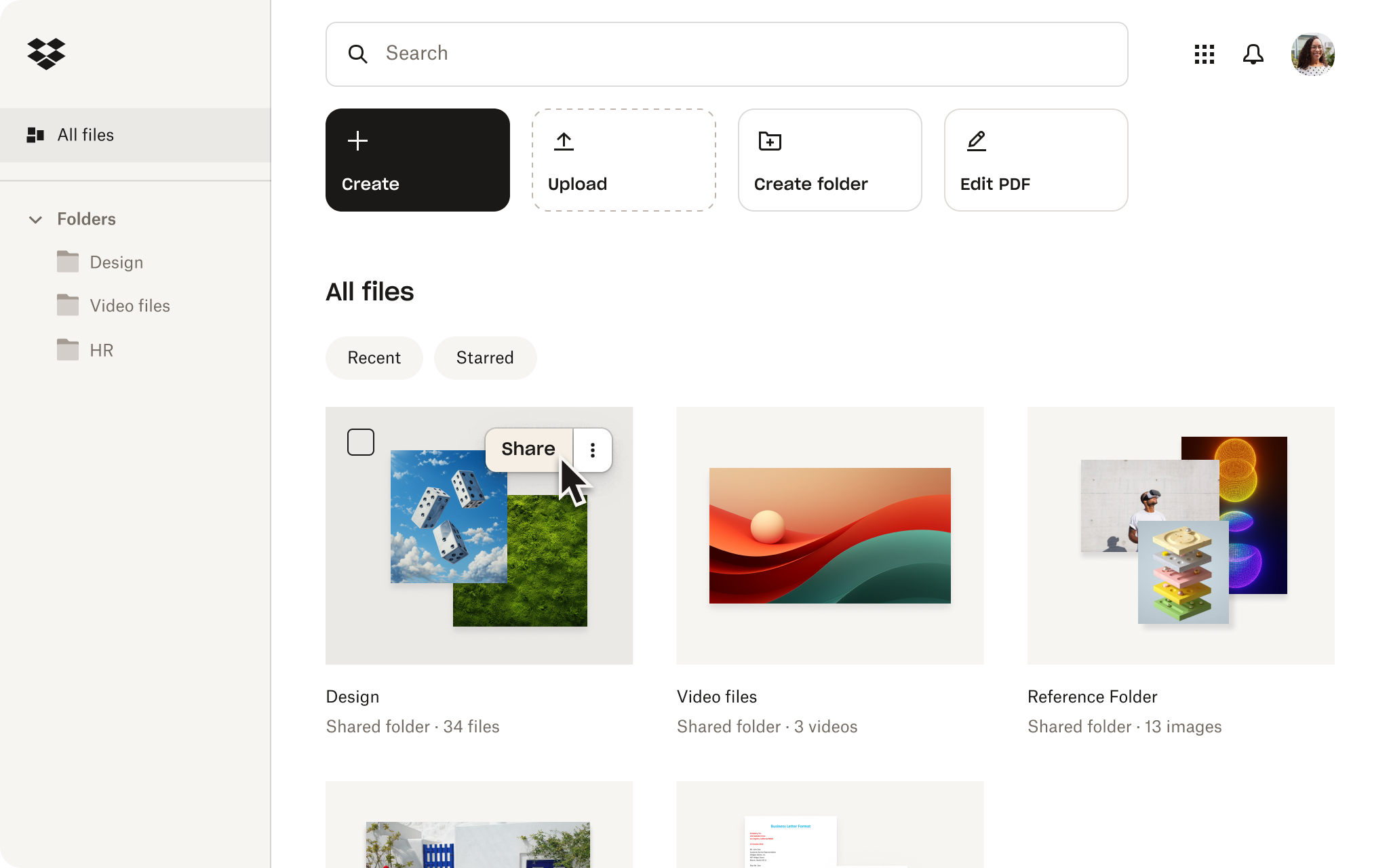How TopLine Film improves video collaboration
At TopLine Film, using physical hard drives to store large video files became unsustainable. Cloud-based storage enables this expanding video production company to easily and securely collaborate with colleagues and freelancers working in the office and remotely.

“The cost-benefit of Dropbox is far superior to that of a physical server. Considering our heavy data use, we get great value.”

Products used
Dropbox
Industry
Professional Services
Size
2–249
Location
London, UK
Challenge: Unwieldy physical storage for large files
TopLine Film – a video production company – was originally spun out in 2019 as a separate video division of TopLine Comms. By 2021, those two brands had grown to 25 people and were acquired by Definition Group, a family of brand strategy, experience and communications consultancies.
TopLine Film used Dropbox from the very beginning. “As a three-person agency, we had lots on our plates,” said Jamie Field, Managing Director at TopLine Film. “Dropbox made it easy.”
With the launch of the video department in 2012, the company’s storage became more complicated. At the time, cloud storage was relatively limited. Video files are massive and TopLine used hard drives to back up everything. This worked when they managed a few terabytes, but the process became unwieldy as they grew. TopLine approached Dropbox about obtaining an enterprise licence, and Dropbox offered assurances that they’d never have to worry about space again.

“It just works. It works really well across PC and Mac, and nearly every single person we hire has a personal Dropbox and is familiar with how to use it. So it’s a really easy onboarding process.”

Solution: the simplest tool is often the best
After their acquisition, TopLine Film noticed Definition Group’s other brands used solutions like SharePoint and WeTransfer. Field’s team tried these platforms, but always returned to Dropbox. They liked the simplicity of its interface coupled with its robust functionality. The TopLine team was so enthusiastic that they convinced the rest of Definition Group’s brands to migrate to Dropbox with the help of Kaizen IT. Together, they’ve created an integrated experience that allows other Definition Group divisions to use Dropbox for archiving and as a file server.
Many of TopLine’s project files come from Adobe software such as Premiere Pro, After Effects and Photoshop. Those files are fairly small and remain in their Dropbox directory. Every time someone clicks “save” or the file auto-saves, it’s instantaneously uploaded to the cloud – effectively acting as a live media server.
Dropbox simplifies the workflow between TopLine and their freelancers, too. Nearly all freelance camera operators use Dropbox, and now when they send footage via a Dropbox link, that video instantaneously appears on TopLine’s media server. TopLine also does a lot of work with Vimeo, and the Dropbox Vimeo integration means TopLine can immediately add footage from their media server into Vimeo without having to upload it separately. “I like the fact that with video files, even kind of fairly niche video formats, you can still play it through Dropbox, which I think is quite unique,” Field said.
Dropbox has also helped TopLine bolster their security as they’ve scaled. The platform’s permissions features give Field control over which people can see and access particular files. It happens in the background, but he remains confident that their assets are protected.

Results: the easiest, most cost-effective way to share large media files
Dropbox has made it much easier for Field and his team to share and receive large video files. TopLine has a hundred people spread across three offices in the UK. With an additional team of freelancers and so many people working from home, it’s important that everybody has sustainable, functional cloud storage. Many companies still use physical servers because they imagine moving to the cloud will be complicated. But Field has found Dropbox to be more cost-effective than dealing with physical servers and service contracts and he’s always experienced stellar support from the Dropbox team.
Clients used to be surprised that a professional video production company used Dropbox, but the platform has become the norm for primary file storage. The more people adopt it, the more everyone realises the benefits.

“From a three-person company up to now, at a hundred people and growing, Dropbox does everything we want it to.”
Jamie FieldManaging Director